Hyundai i30 vs BYD Atto 2 - Differences and prices compared
Compare performance (140 HP vs 177 HP), boot space and price (24000 £ vs 27400 £) at a glance. Find out which car is the better choice for you – Hyundai i30 or BYD Atto 2?
Costs and Efficiency:
Price and efficiency are often the first things buyers look at. Here it becomes clear which model has the long-term edge – whether at the pump, the plug, or in purchase price.
Hyundai i30 has a slightly advantage in terms of price – it starts at 24000 £, while the BYD Atto 2 costs 27400 £. That’s a price difference of around 3429 £.
Engine and Performance:
Power, torque and acceleration are the classic benchmarks for car enthusiasts – and here, some clear differences start to show.
When it comes to engine power, the BYD Atto 2 has a clearly perceptible edge – offering 177 HP compared to 140 HP. That’s roughly 37 HP more horsepower.
In acceleration from 0 to 100 km/h, the BYD Atto 2 is distinct quicker – completing the sprint in 7.90 s, while the Hyundai i30 takes 9.60 s. That’s about 1.70 s faster.
In terms of top speed, the Hyundai i30 performs to a small extent better – reaching 197 km/h, while the BYD Atto 2 tops out at 160 km/h. The difference is around 37 km/h.
There’s also a difference in torque: BYD Atto 2 pulls a bit stronger with 290 Nm compared to 253 Nm. That’s about 37 Nm difference.
Space and Everyday Use:
Cabin size, boot volume and payload all play a role in everyday practicality. Here, comfort and flexibility make the difference.
Both vehicles offer seating for 5 people.
In curb weight, Hyundai i30 is noticeable lighter – 1291 kg compared to 1570 kg. The difference is around 279 kg.
In terms of boot space, the BYD Atto 2 offers barely noticeable more room – 400 L compared to 395 L. That’s a difference of about 5 L.
In maximum load capacity, the BYD Atto 2 performs barely noticeable better – up to 1340 L, which is about 39 L more than the Hyundai i30.
When it comes to payload, Hyundai i30 somewhat takes the win – 509 kg compared to 410 kg. That’s a difference of about 99 kg.
Who comes out on top?
Overall, the BYD Atto 2 shows itself to be dominates this comparison and secures the title of DriveDuel Champion.
It convinces with the more balanced overall package and proves to be the more versatile choice for everyday use.
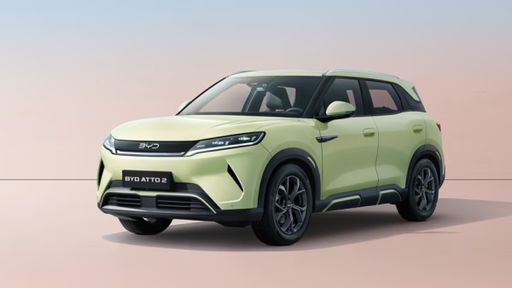
BYD Atto 2
Costs and Consumption
View detailed analysis
Engine and Performance
View detailed analysis
Dimensions and Body
View detailed analysis
Hyundai i30
The Hyundai i30 proves that sensible can also be stylish, offering a confident driving character wrapped in neat, modern design. It serves up a roomy, well-equipped cabin and composed ride that make everyday motoring feel like a clever purchase rather than a compromise.
details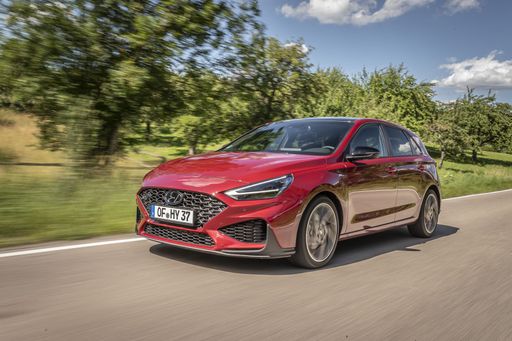
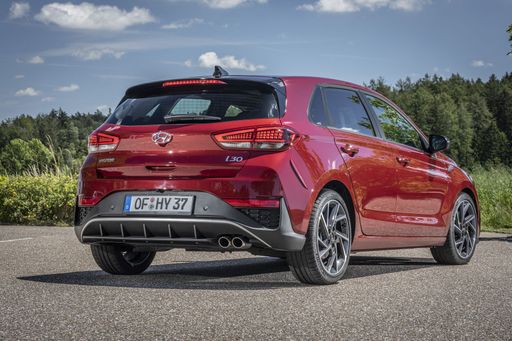
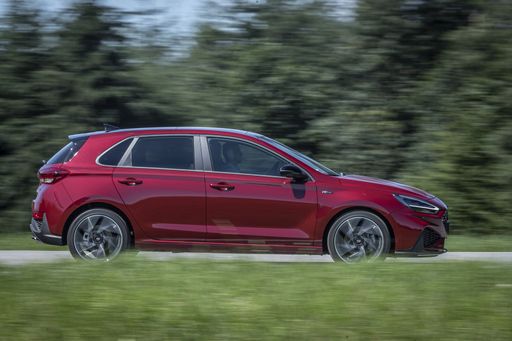
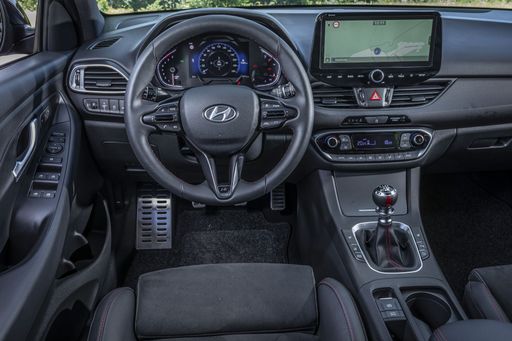
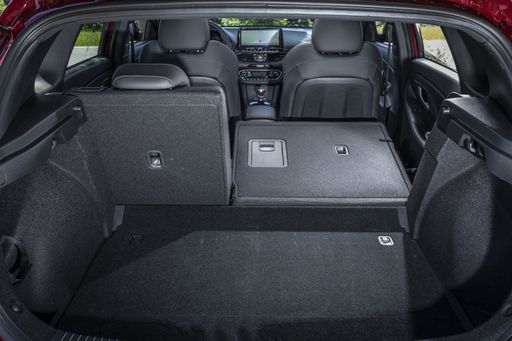
BYD Atto 2
The Atto 2 is making waves in the electric vehicle market with its sleek design and impressive range. This innovative model combines cutting-edge technology with captivating aesthetics, making it a standout choice for eco-conscious drivers. With its spacious interior and advanced features, the Atto 2 offers both comfort and convenience for everyday use.
details
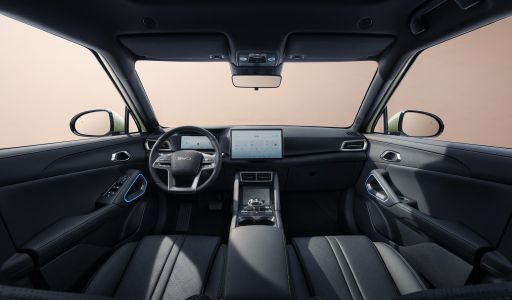

|

|
|
|
|
Costs and Consumption |
|
|---|---|
|
Price
24000 - 29300 £
|
Price
27400 - 30000 £
|
|
Consumption L/100km
5.7 - 6 L
|
Consumption L/100km
-
|
|
Consumption kWh/100km
-
|
Consumption kWh/100km
16 kWh
|
|
Electric Range
-
|
Electric Range
312 km
|
|
Battery Capacity
-
|
Battery Capacity
-
|
|
co2
130 - 136 g/km
|
co2
0 g/km
|
|
Fuel tank capacity
50 L
|
Fuel tank capacity
-
|
Dimensions and Body |
|
|---|---|
|
Body Type
Hatchback
|
Body Type
SUV
|
|
Seats
5
|
Seats
5
|
|
Doors
5
|
Doors
5
|
|
Curb weight
1291 - 1407 kg
|
Curb weight
1570 kg
|
|
Trunk capacity
395 L
|
Trunk capacity
400 L
|
|
Length
4340 mm
|
Length
4310 mm
|
|
Width
1795 mm
|
Width
1830 mm
|
|
Height
1455 mm
|
Height
1675 mm
|
|
Max trunk capacity
1301 L
|
Max trunk capacity
1340 L
|
|
Payload
463 - 509 kg
|
Payload
410 kg
|
Engine and Performance |
|
|---|---|
|
Engine Type
Petrol, Petrol MHEV
|
Engine Type
Electric
|
|
Transmission
Manuel, Automatic
|
Transmission
Automatic
|
|
Transmission Detail
Manual Gearbox, Dual-Clutch Automatic
|
Transmission Detail
Reduction Gearbox
|
|
Drive Type
Front-Wheel Drive
|
Drive Type
Front-Wheel Drive
|
|
Power HP
100 - 140 HP
|
Power HP
177 HP
|
|
Acceleration 0-100km/h
9.6 - 13.1 s
|
Acceleration 0-100km/h
7.90 s
|
|
Max Speed
178 - 197 km/h
|
Max Speed
160 km/h
|
|
Torque
172 - 253 Nm
|
Torque
290 Nm
|
|
Number of Cylinders
3 - 4
|
Number of Cylinders
-
|
|
Power kW
74 - 103 kW
|
Power kW
130 kW
|
|
Engine capacity
998 - 1482 cm3
|
Engine capacity
-
|
General |
|
|---|---|
|
Model Year
2024
|
Model Year
2025
|
|
CO2 Efficiency Class
D, E
|
CO2 Efficiency Class
A
|
|
Brand
Hyundai
|
Brand
BYD
|
What drive types are available for the Hyundai i30?
Available configurations include Front-Wheel Drive.
The prices and data displayed are estimates based on German list prices and may vary by country. This information is not legally binding.
